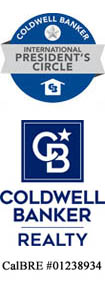Closing Costs
There are many costs that go into buying a property and are often loosely grouped as “closing costs”. In the broadest sense these costs would include every expense that is paid at the closing of a sale on top of the purchase price. Who pays these costs, the buyer or the seller? Many of these costs are negotiable and either party may pay them. However, there are customary practices that often vary based on the city, county or state that have over time become common ways these costs are divided. But in all cases they can be negotiated. However, once you go outside the customary practices, if you try to negotiate either that the buyer or seller pays a cost that by custom would not be their expense, it will usually be viewed as a price change up or down depending on who is being asked to pay.
Closing costs can be divided into two big groups: recurring and non-recurring.
Non-recurring costs are one-time expenses that are paid just at closing. These include, but are not limited to:
- Loan related fees: Appraisal Fee, Loan Points, Recording Fees, Tax Service Fees, origination fees, Lender Document Processing. Not all lenders charge all these fees for all loans so it is good to shop.
- Title Insurance
- Escrow Fees: charged by the “escrow” (a neutral third party that processes the transaction). Often Title companies perform this service in addition to providing title insurance.
- Recording fees
- Transfer Taxes
- Inspection costs (these are sometimes not considered “closing costs” but they are real and can be paid at the closing in some cases.
- Special reports like a Natural Hazard Disclosure which can be prepared for a fee by third parties who fulfill the mandated disclosures in California of zones with hazards like fire risk, earthquakes, floods, etc.
- Up front mortgage insurance premiums
- Commissions
By custom in Northern California buyers have traditionally paid Title, Escrow and lender fees. Sellers have paid commissions, transfer taxes and Natural Hazard Reports.
Recurring costs are expenses that are paid at closing but are not one time fees but are ongoing costs that are paid in advance. These can be thought of as not a cost of buying but of ongoing ownership of the property. These include, but are not limited to:
- Homeowners Insurance (sometimes called fire insurance, but most policies cover much more than fire risk)
- Home Warranty
- Property Taxes
- Homeowner Association dues
- Mortgage Interest Paid in Advance
- If you elect to have your lender collect and hold in their escrow accounts your taxes and insurance, reserves may be collected up front at the closing.
The recurring costs, in general, are prorated, so that the seller pays the share that covers the time before the closing and the buyer pays the portion that would cover the time after the sale closes.

